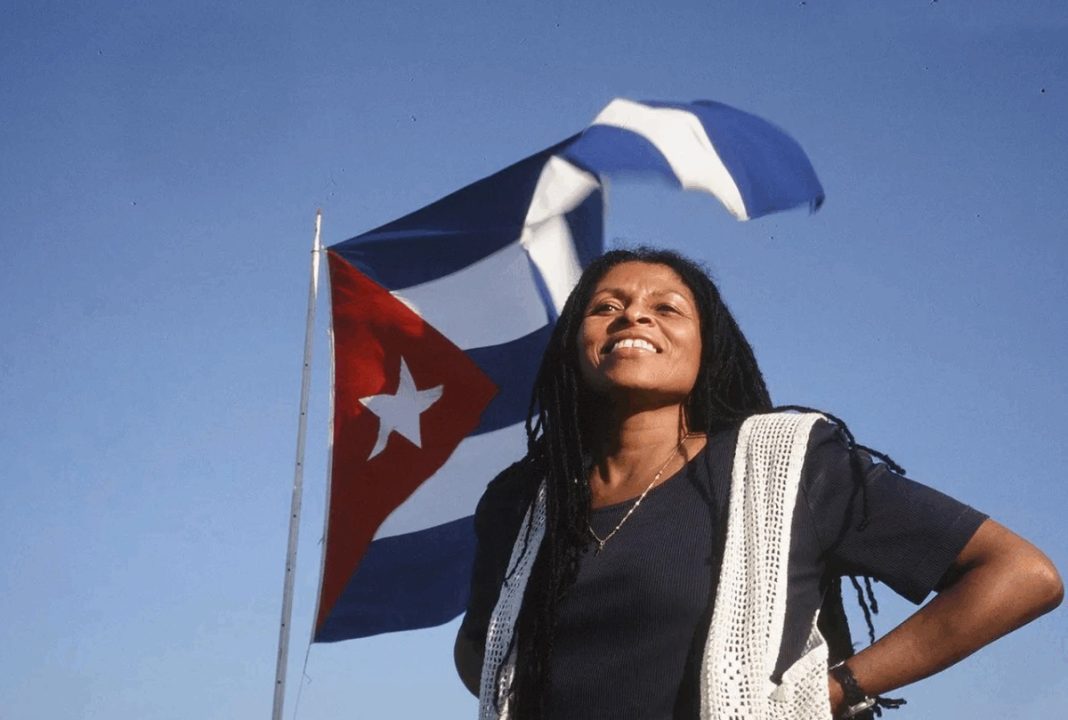HAVANA, Cuba – Assata Shakur, the Black liberation activist convicted of killing a New Jersey state trooper before escaping prison and living in exile in Cuba for more than four decades, has died in Havana at the age of 78.
The Cuban Foreign Ministry announced her death on Friday, September 26, 2025, saying she passed away on Thursday from health complications linked to advanced age.
Her daughter, Kakuya Shakur, wrote in a Facebook post, “Words cannot describe the depth of loss that I am feeling at this time. I want to thank you for your loving prayers.”
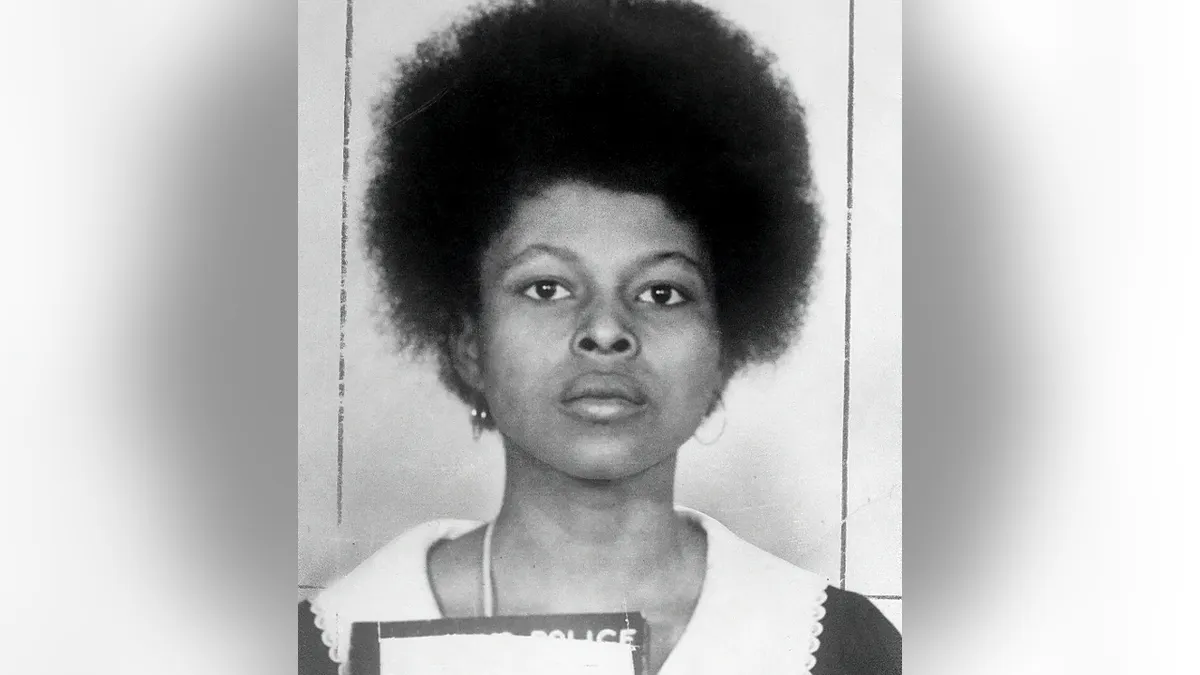
From Joanne Chesimard to Assata Shakur
Born Joanne Deborah Byron in Queens, New York, on July 16, 1947, Shakur had a troubled childhood before turning to political activism in college.
While attending Borough of Manhattan Community College and later City College of New York, she became deeply involved in Black liberation movements.
She joined the Black Panther Party and the Black Liberation Army, organisations that were under intense surveillance by law enforcement.
At 21, she married Louis Chesimard, though the marriage lasted only a year. She later adopted the name Assata Shakur.
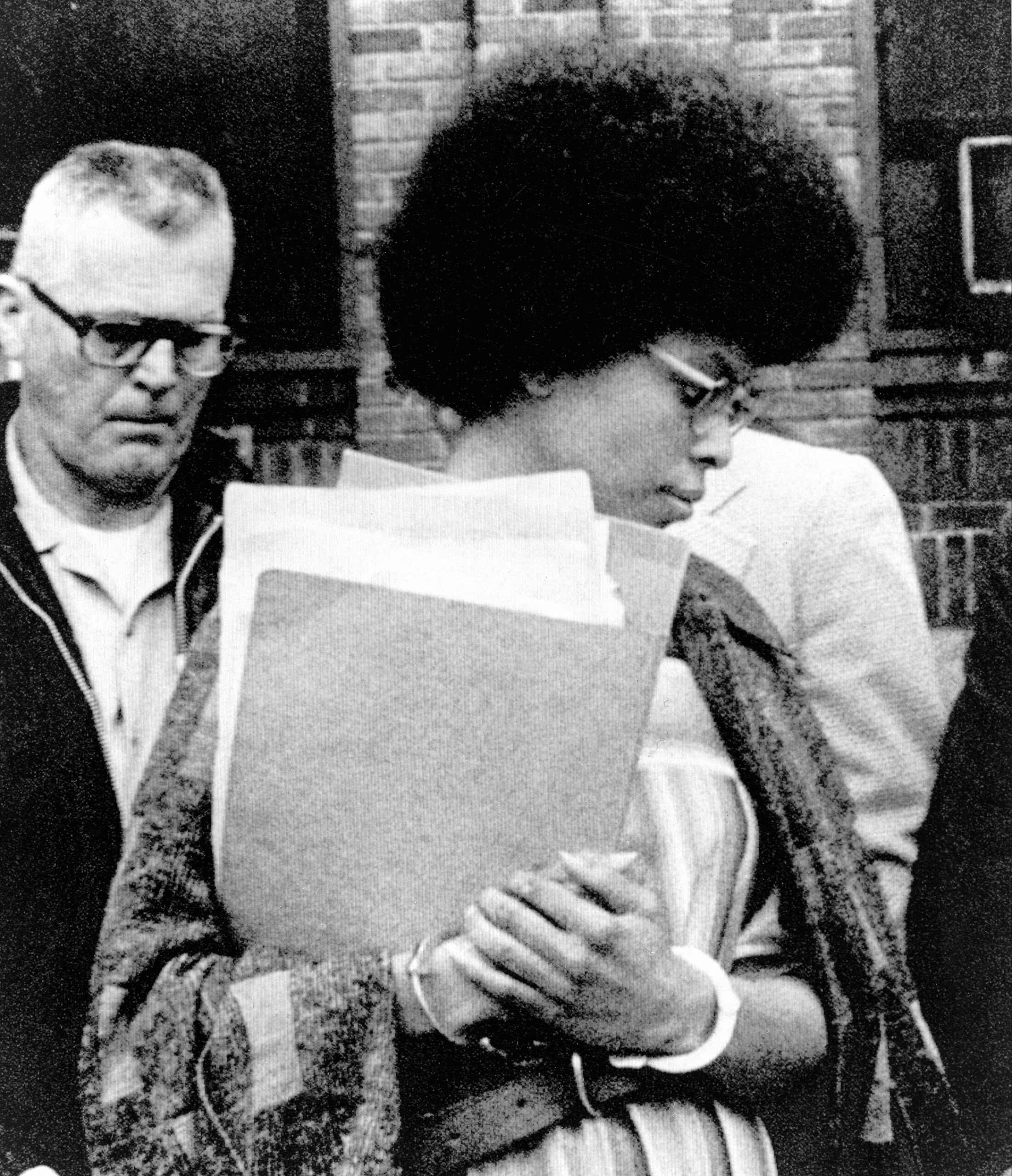
The 1973 New Jersey Turnpike Shooting
Shakur’s notoriety stemmed from a confrontation on the New Jersey Turnpike on May 2, 1973.
During a traffic stop, a shootout broke out involving Shakur, two male companions, and state troopers James Harper and Werner Foerster.
Authorities said Shakur shot Foerster in the stomach with the officer’s own gun during the clash. The driver also shot Foerster in the arm.
Shakur and her companions fled in their car, driving five miles before being intercepted. One of the men, James Coston, died of his injuries during the escape attempt.
Trooper Foerster was killed at the scene. Shakur denied pulling the trigger, but in 1977 she was convicted of murder and sentenced to life in prison.

Prison Escape and Exile in Cuba
On Nov. 2, 1979, Shakur escaped from the Clinton Correctional Facility for Women in New Jersey. Armed members of the Black Liberation Army posed as visitors and helped her flee.
She resurfaced several years later in Cuba, where Fidel Castro granted her political asylum.
In 1987, she published her autobiography, which recounted her political journey, her trial, and her years underground.
Shakur remained one of the most prominent American fugitives in Cuba, with her case a constant obstacle in U.S.-Cuba relations.
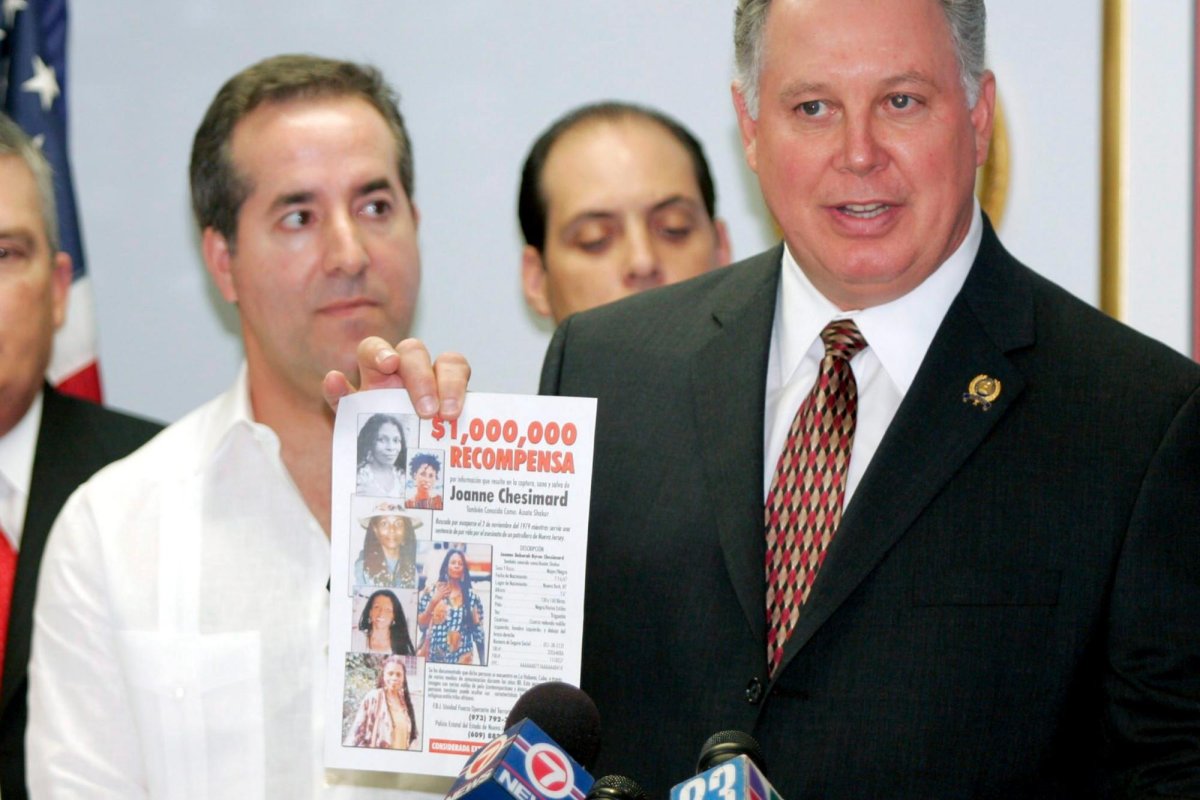
Diplomatic Tensions
Because Havana repeatedly refused to extradite her, Shakur’s presence in Cuba became a sticking point in negotiations between Washington and the communist-led island.
After President Barack Obama re-established diplomatic relations with Cuba in 2015, then–New Jersey Governor Chris Christie demanded her return.
On Friday, Governor Phil Murphy and state Police Superintendent Col. Patrick Callahan issued a joint statement, vowing to “vigorously oppose any attempt to repatriate Chesimard’s remains to the United States.”
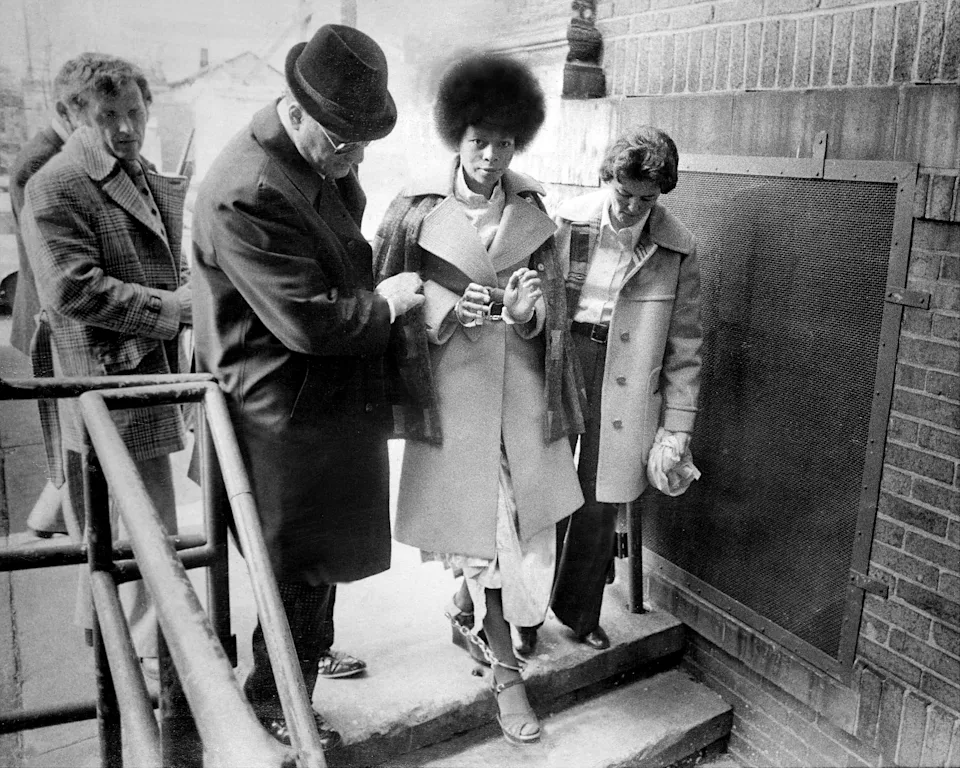
FBI’s Most Wanted Terrorist
In 2013, Shakur became the first woman placed on the FBI’s list of most wanted terrorists.
She was added on the 40th anniversary of Foerster’s death, and the bureau offered a $2 million reward for her capture.
Supporters pointed to her activism and ties to Black liberation movements as reasons for her targeting by law enforcement.
Shakur was also known as the godmother of rapper Tupac Shakur, through her brother Mutulu Shakur.
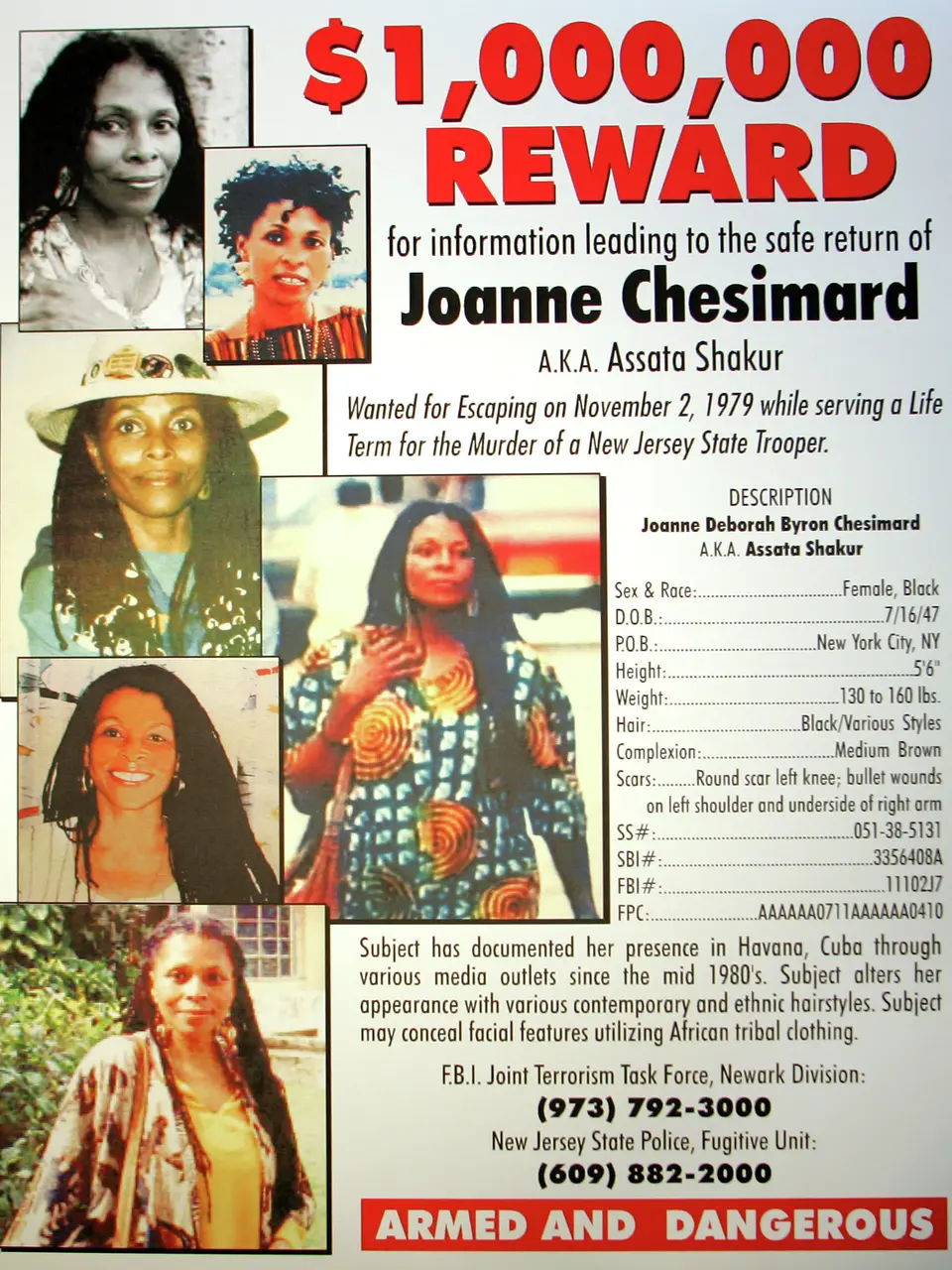
Foerster Family’s Response
The family of Trooper Werner Foerster said Shakur’s death did not bring them joy but provided “a measure of closure.”
“While this development marks the end of a long and painful chapter, it does not erase the profound loss we continue to feel each day,” the family said in a statement.
“The pain of losing Werner is something we carry every single day. His absence is felt in every quiet moment, every family gathering, and every milestone he should have been here to witness.”
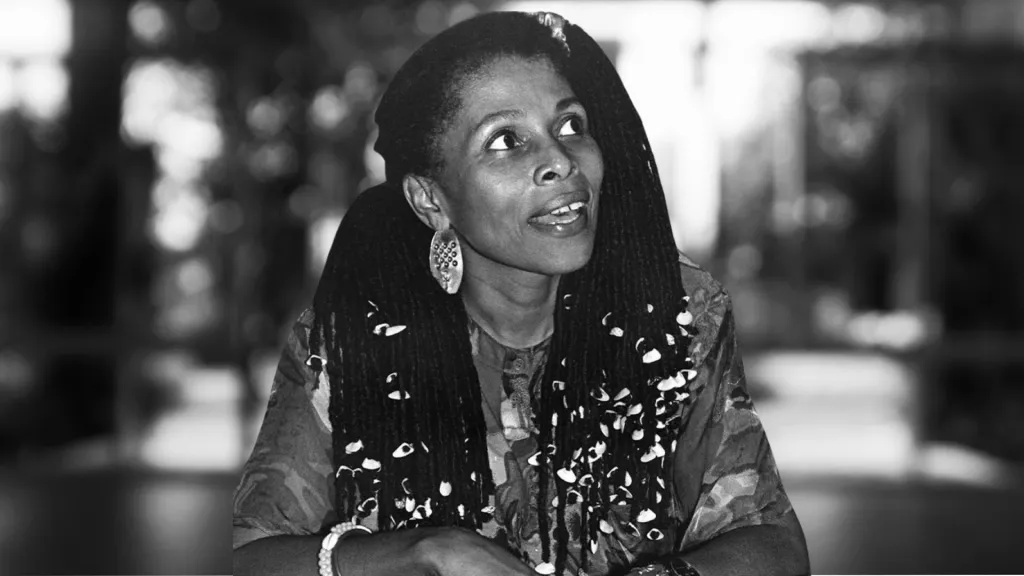
Shakur’s Defence and Legacy
Shakur consistently denied killing Foerster.
In a 1998 interview with NBC New York from Havana, she said, “I was shot with my arms in the air, then shot again in the back and left on the ground to die. Next thing I knew, they were coming by me and saying, ‘Is she dead yet, is she dead yet?’”
She alleged she was later beaten and tortured by police in the hospital.
Her defence attorney, William Kunstler, argued in 1977 that “American racism has done to another Black person what it has done to Black people down through the years. The reality is, this beautiful young Black woman never had a chance.”
Writings as a Call to Action
Even in exile, Assata Shakur’s words found new life among younger generations of activists.
Her autobiography, Assata, published in 1988, became required reading in some activist circles and later echoed through the Black Lives Matter movement.
Admirers viewed her reflections as a moral directive, while detractors dismissed them as rooted in Marxist and communist thought.
“It is our duty to fight for our freedom. It is our duty to win,” she wrote in the book.
“We must love each other and support each other. We have nothing to lose but our chains.
“People get used to anything. The less you think about your oppression, the more your tolerance for it grows. After a while, people just think oppression is the normal state of things. But to become free, you have to be acutely aware of being a slave.”
After news of her death, Black Lives Matter Grassroots Inc., a coalition of racial justice organisers across the United States, pledged to “fight in her honour and memory.”
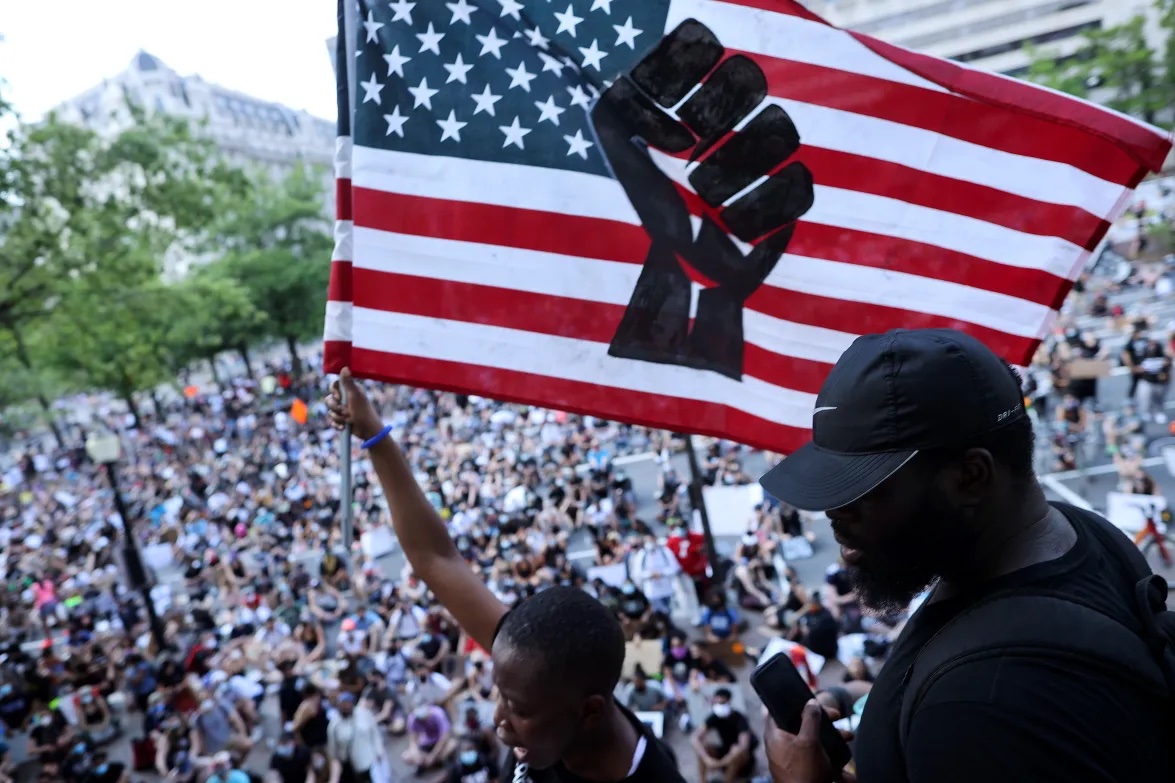
Remembered by Activists
Malkia Amala Cyril, one of the early organisers of Black Lives Matter, expressed grief at the timing of Shakur’s passing, noting that it came amid what they described as a global slide toward authoritarian rule.
“The world in this era needs the kind of courage and radical love she practised if we are going to survive it,” Cyril said.
Cyril’s late mother had worked with Shakur in the New York chapter of the Black Panther Party, deepening the sense of personal loss.
Cultural Reverberations
Shakur’s influence was not confined to politics. She was close to the family of the late rapper Tupac Shakur, who regarded her as a godmother, a connection that linked her to hip-hop culture at its height.
Her name began appearing in music as early as the late 1980s.
Public Enemy, the politically outspoken rap group, referenced her in their 1988 album It Takes a Nation of Millions to Hold Us Back.
Years later, rapper Common paid tribute with “A Song for Assata” in 2000, a track that retold her story in verse.
Common’s performance at a White House poetry event in 2011 sparked controversy.
Conservatives and police groups argued that honouring an artist who celebrated Shakur was an affront to law enforcement and to the family of Werner Foerster, the New Jersey trooper she was convicted of killing.

